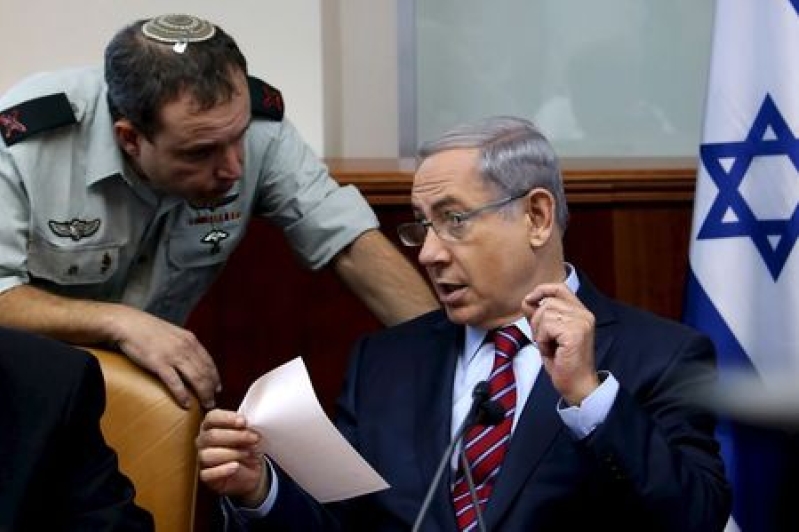
Israeli Prime Minister Benjamin Netanyahu has raised the possibility of revoking benefits and travel rights of some Palestinians living in East Jerusalem in response to a wave of Palestinian violence, a government official said on Monday.
Such a move did not appear to be imminent or even politically feasible but its mere mention ran counter to a decades-old Israeli assertion that Jerusalem is a united city where Arab and Jewish residents enjoy equal rights.
Hanan Ashrawi, a member of the executive committee of the Palestine Liberation Organization, said the step, if adopted, would deprive Palestinians in Jerusalem of the most basic rights and services and provoke confrontations.
"This alarming escalation, an inhuman and illegal measure, must be stopped immediately," Ashrawi said in a statement.
Israel regards all the city, including East Jerusalem, which was captured along with the West Bank in 1967, as its indivisible capital. Unlike their brethren in the occupied West Bank, Palestinians in East Jerusalem receive Israeli social benefits and can move freely in Israel.
Many of the Arab assailants in one of the worst waves of Palestinian-Israeli street violence in decades, fueled in part by tensions over a holy site sacred to Muslims and Jews, have come from East Jerusalem.
Many of the Palestinian attacks on Israelis are now occurring in the West Bank, rather than in Jerusalem where they started.
Israeli forces on Monday shot dead a Palestinian assailant who the army said had stabbed and wounded a soldier at an intersection near the town of Hebron. Hours later, another Palestinian was shot and killed by soldiers after he tried to stab an Israeli, the military said.
Since Oct. 1, at least 55 Palestinians, half of whom Israel says were assailants, have been shot and killed by Israelis at the scene of attacks or during protests in the West Bank and Gaza. Israeli police say 10 Israelis have been killed in Palestinian stabbings or shootings.
REVOKING RIGHTS
Citing comments at a security cabinet meeting held two weeks ago, the government official said Netanyahu mentioned the possibility of revoking some rights for Palestinians who live within Jerusalem's municipal borders but outside the barrier Israel built during a Palestinian suicide bombing campaign a decade ago.
Rights groups estimate that about 100,000, or almost a third of Jerusalem's Palestinians, live beyond the barrier.
The official, however, said there was no discussion of the matter at the forum and Netanyahu did not ask that it be included on the agenda of a future meeting. Netanyahu's remarks were first reported by Channel Two television late on Sunday.
At the security cabinet meeting, Netanyahu complained of lawlessness in Palestinian neighborhoods in East Jerusalem's outlying areas, where sporadic Israeli raids to arrest suspected militants are usually met with violent protests.
After the 1967 Middle East war, Israel expanded Jerusalem's municipal borders by annexing parts of the West Bank to the city. Jerusalem Palestinians are not Israeli citizens, but they hold Israeli-issued blue IDs that grant them permanent resident status.
Rights groups and Palestinians in East Jerusalem have long complained of a paucity of municipal services, difficulties in receiving building permits and Israeli moves to revoke the residency of those who leave the city for extended periods.
Israel's annexation of East Jerusalem and its claim to all of the city as its capital are not recognized internationally. Palestinians want East Jerusalem to be the capital of the state they seek to establish in the West Bank and Gaza Strip.
(Additional reporting by Ori Lewis; Editing by Maayan Lubell and Angus MacSwan)






